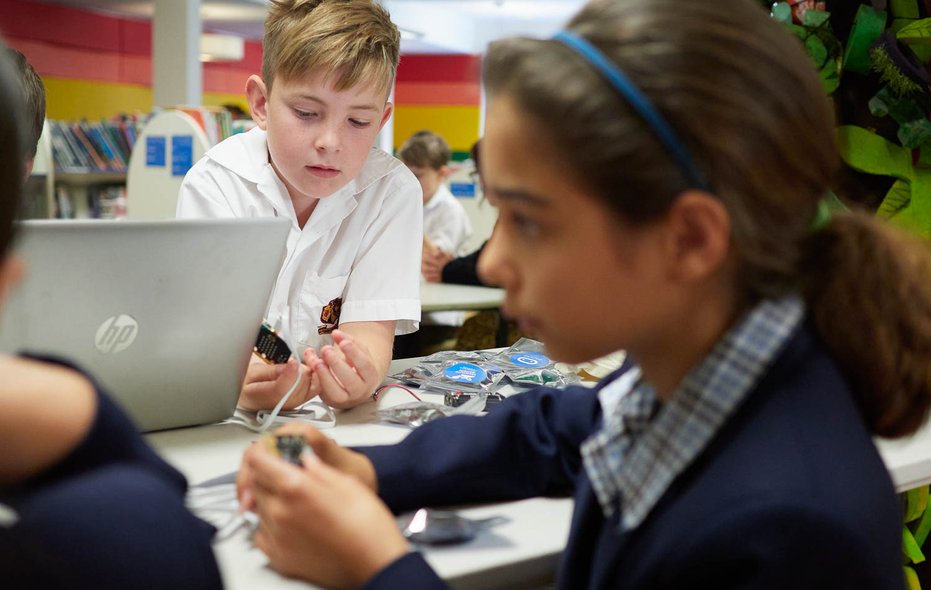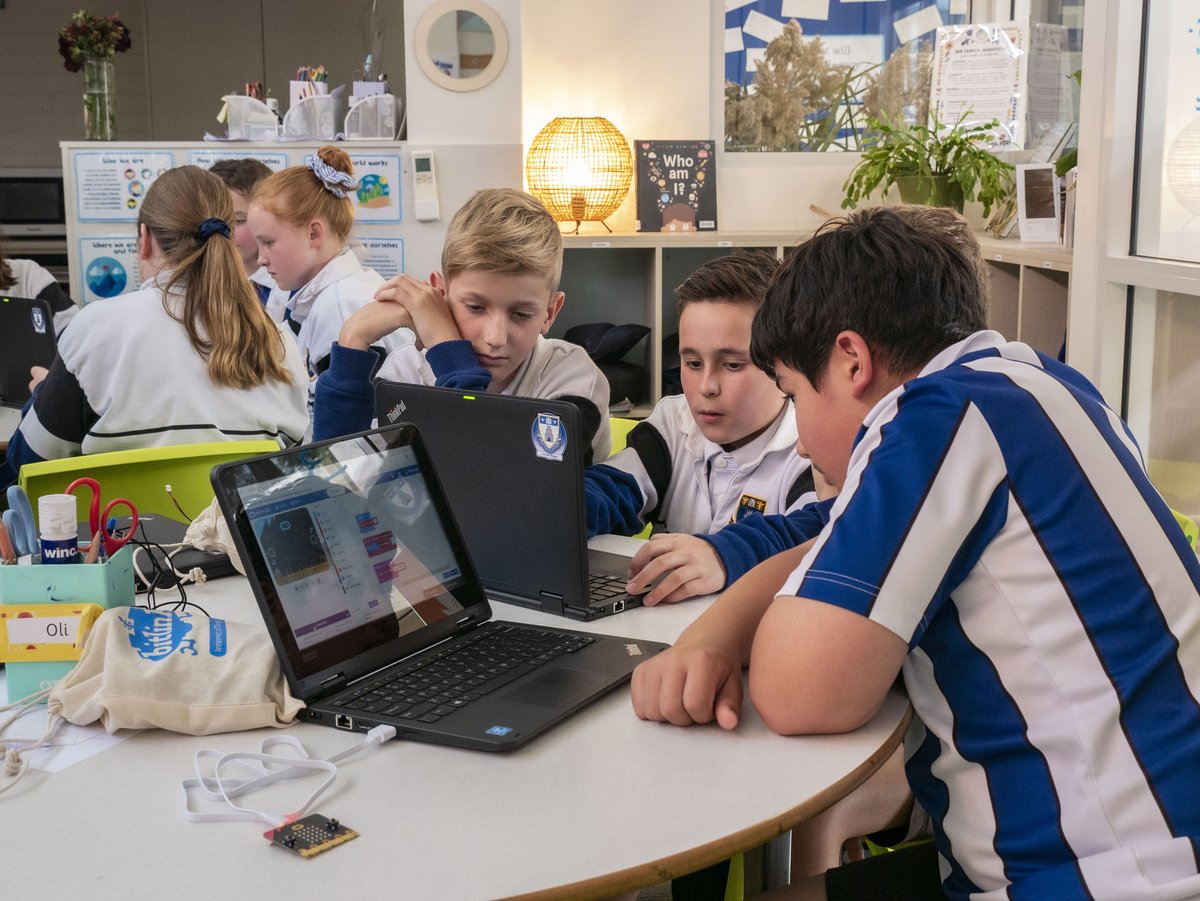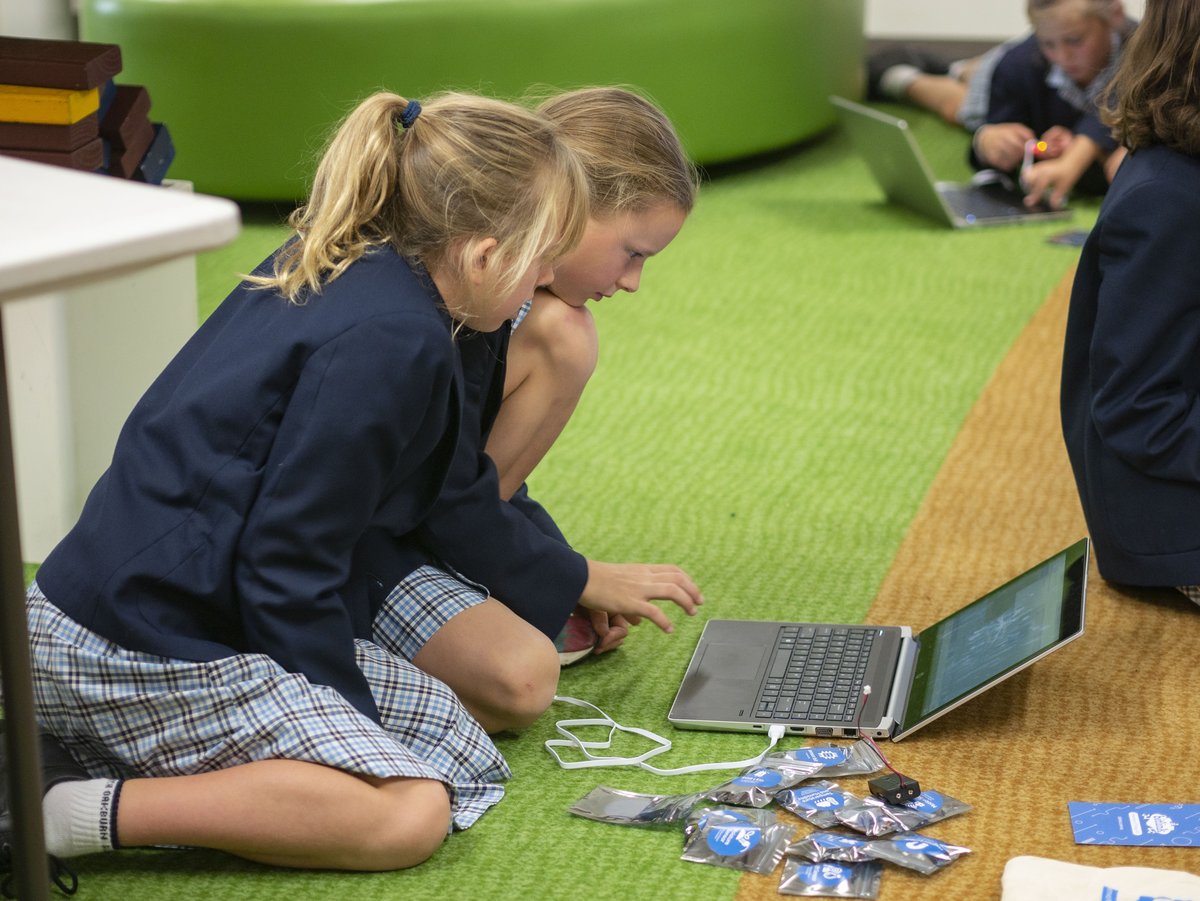Teachers

Tools for Teachers
We have built a comprehensive suite of tools to help teachers make the most of their Bitlink kits in the classroom.
Our teacher tools include:
- A slide deck for every lesson
- Guiding and reflection questions
- Learning intentions and success criteria
- Solution code examples for all challenges
- Assessment ideas and example rubrics for design challenges
- Links to the Australian Curriculum
If you'd like to make the most of our lessons and kits, we'd strongly recommend signing up as a teacher and exploring these resources as well.
The Bitlink team have built a platform that teaches students how to learn rather than just what to learn. These tools encourage the development of traits and dispositions necessary to embrace the challenges of a complex and ever-changing world.

Design Principles
Our lessons and teacher tools have been designed according to principles that we've distilled from years of working with teachers and schools, and figuring out what really works in classrooms.
Inquiry-based
Our lessons and challenges have all been developed with inquiry-based learning as an underpinning principle. There's plenty of room for students to experiment, explore and learn for themselves. Our lessons proceed as a series of challenges where students are given the basic building blocks for success, but are encouraged to figure out how to put those blocks together in their own way.
Easy for Teachers
Teachers have plenty to do and we want to make their lives just a little bit easier. All of our teaching resources have been carefully designed to be as easy to navigate and to use as possible. We're always refining the resources based on feedback from teachers in our partner schools, so that they continue to improve over time. We do what we can to reduce administration and planning workloads for teachers, so they can focus more of their time and attention on the students in the classroom.
Fun for Students
We believe that students learn more when they're having fun. From our Makers Treehouse videos to our challenge structure, we've carefully tuned our lessons to ensure that kids are always having fun and being engaged (even when things get a bit difficult!).
Careful Scaffolding
Our lessons have been carefully scaffolded, so that every lesson reuses and remixes students' existing knowledge, as well as introducing just one new concept at a time. In this way, over 20 lessons and over 50 challenges, students learn a whole range of computer science fundamentals, sometimes without even realising that they're learning at all.
Pair Programming
In industry, we often use pair programming as a way to improve productivity and the overall quality of code. When it comes to complex tasks like programming and electronics, it really is true that four eyes are better than two! With this in mind, all of our lessons have been designed to be used in pairs, so that students always have the benefit of another set of eyes and another mind working on the problem in front of them.
The lesson plans enable any teacher to access the Digital Technologies curriculum without feeling overwhelmed or underprepared. The curriculum links and lesson content are all in one place and the sequence of lessons, which link to real world scenarios, move in a timely and organised way, introducing new concepts and mini-inquiries throughout.

What About Parents?
While our teacher tools have been built for use in classrooms, they're also likely to be helpful for anyone who wants to work with a young person and learn about technology together. If you're interested in accessing our discussion questions, reflection questions, slide decks and solution code, then feel free to sign up for a teacher account. There's no requirement that you're a teacher employed in a formal education institution - you can use these tools, just like a teacher would! If you have any questions about how to use these tools as a parent or educator in an informal setting, then please get in touch.